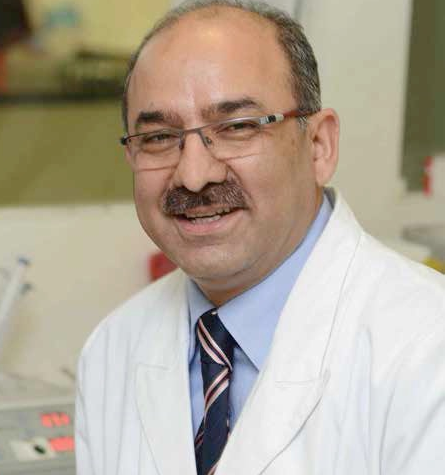
 Dr B K Rana, Joint Director, National Accreditation Board of Hospital and Healthcare Providers India (NABH), in conversation with Ekta Srivastava, ENN, talks about the process and benefits of getting NABH accreditation among the blood banks
Dr B K Rana, Joint Director, National Accreditation Board of Hospital and Healthcare Providers India (NABH), in conversation with Ekta Srivastava, ENN, talks about the process and benefits of getting NABH accreditation among the blood banks
Could you please give us the brief overview of the blood industry in India?

It is highly collaborative. Licensing process is in place under the Drugs and Cosmetic Act. Every blood bank opening up needs to be licensed and the reason about 2500 blood banks are operating under license. But health being a state subject, the licensing authority comes from the Centre and the states. There may even be variations among the states for providing the license. The services of the blood bank may also vary; licensing requirement may prescribe the size of the room, the number of nurses and doctors. The structures are there, but when we talk about the outcomes, there are errors going on in blood bank. Sometimes there is no proper cross match of the blood or correct identification of the patient or no proper testing. All these put together leads to the problem. For last seven eight years, we in NABH have been trying to put a system in place in addition to what the Drugs and Cosmetic Act licensing requirements have.
How much is the NABH accreditation important for the blood banks after getting license from Drug Controller?
The licensing is the minimum requirement; without license you cannot operate a blood bank. Accreditation requirements are built on those requirements. Then we have defined the additional requirements at different levels, like the management level and how it functions, how the responsibilities are defined, how the authorities are defined for the management and the technical officials, quality management, overall management of the system and of the organization. We have defined the requirement for different steps and processes being followed up in different blood banks “ how to identify and recruit the donors, taking them on board, checking the donor for adequacy of the donor etc. Once the blood is collected, it is tested stored. According to the Act, certain essential items which to be tested during testing process. Some blood banks do tests over and above these to further ensure that the blood is safe. Storage is also critical because all blood components need to be kept within a certified temperature ranges. Then checking the patients who come for blood, whether they are the genuine one or not. Then comes the transport; care has to be taken that the blood does not travel far once it is issued, and the place it is issued for has facilities to store that blood. These are the things that we put in the accreditation requirement over and above the Drugs and Cosmetic Licensing Act requirements.

What benefits does a blood bank get after getting NABH accreditation?
Its like a third party attestation that you are doing well. It has been seeing that blood banks that have gone for accreditation have improved their system; they have streamlined their processes, the requirements, and minimized their errors. These things definitely help, because the standards define everything. They say you need to have a competent doctor, staff and adequate infrastructure. Adequate infrastructure means you need have to have room maintaining certain temperature and humidity, equipments need to be maintain and calibrated and should be working as they are suppose to work. This gives confidence to the staff, management of the blood bank that they have system in place which actually keeps a check on them. If something goes wrong within the system, they can check it and control it. So there are many things which will be beneficial for the organization after getting accreditation.
How many hospitals are under NABH accreditation?
We have received 75 applications since 2007, out of which 60 has been granted accreditation. But it is not growing at a very fast pace. We need to have more awareness and industry also needs to make people aware that you need to reach certain benchmarks, certain improvements through a system.
What are the major challenges that the blood bank industry in India faces in getting accreditation?
Over the years, we have found that while blood banks have money, they claim they have it for applying for accreditation. It is probably because they dont have encouragement or they dont find value in it or we are not able to promote it. Otherwise its not as haphazard as other industries like hospitals, diagnostics and laboratories, which anybody can start. Here, you have to have a license. When we analyze the situation and talk to the blood banks, the management says they need it to have some incentive for doing it. We have to make them aware of the incentives like errors are minimized, the staff is motivated, the performance goes up, and in time, and wastage will be minimized.
Corporate have a different business strategy while the government has different one. While the government is providing service, corporate have to make money. They need to make money to survive, while the government uses the tax payers money
There are challenges or perception with blood banks, that it is an organization where the motive is not to make money. It is a service and you are not supposed to sell it. There may be some challenges for blood banks to come up with money for the accreditation, but we are trying to overcome this. We had a talk with NACO and that Ministry of Health that they should support blood banks.
How will accreditation of blood banks help the general public?
We need to come together to make people aware. Its not only the blood bank that needs to be made aware of accreditation but the patient too should go to blood banks that have accreditation or certification. The message should go to the blood bank and the stakeholders that we should promote quality. I am not saying that accreditation is one of the tools for making quality, but my request is that we should be focusing on the patient safety. Ultimately, what we are talking about is the patient.
Be a part of Elets Collaborative Initiatives. Join Us for Upcoming Events and explore business opportunities. Like us on Facebook , connect with us on LinkedIn and follow us on Twitter , Instagram.












